上海交大赵大海接受央视专访:上海遵守“动态清零”的新冠疫情防控方针
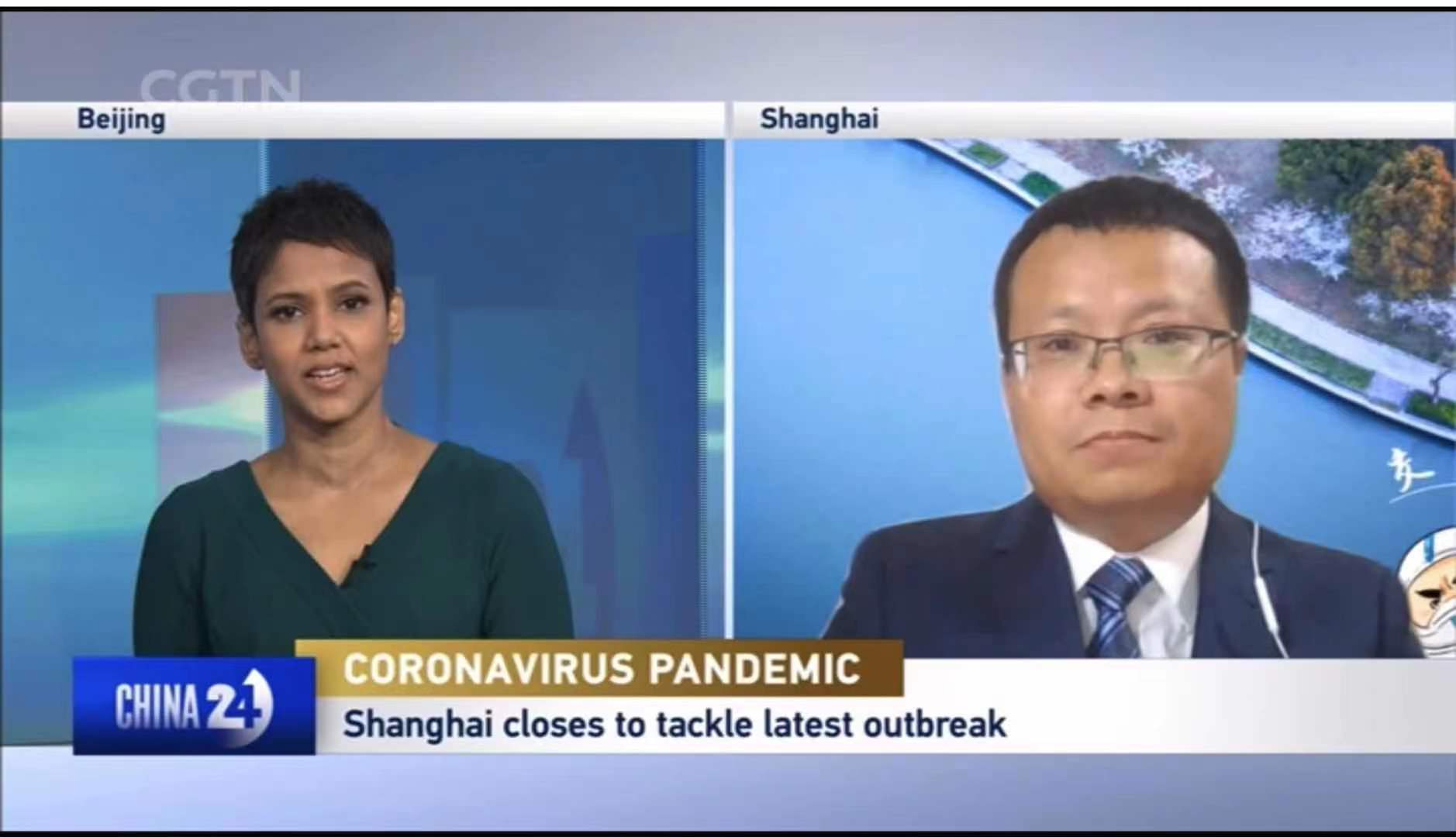
上海交通大学国际与公共事务学院教授、博士生导师,上海交通大学-耶鲁大学卫生政策联合研究中心执行主任赵大海,自新冠肺炎疫情暴发以来,对于新冠疫情暴发、防控以及卫生政策第72次接受中央电视台专访,也是第124次接受央视、上视专访。2022年3月31日,赵大海接受中央电视台英语频道专访,在《中国24小时》节目就上海新冠肺炎疫情防控的策略实施效果和动态清零方针等相关话题进行了解释和评论。现将访谈内容摘录如下。
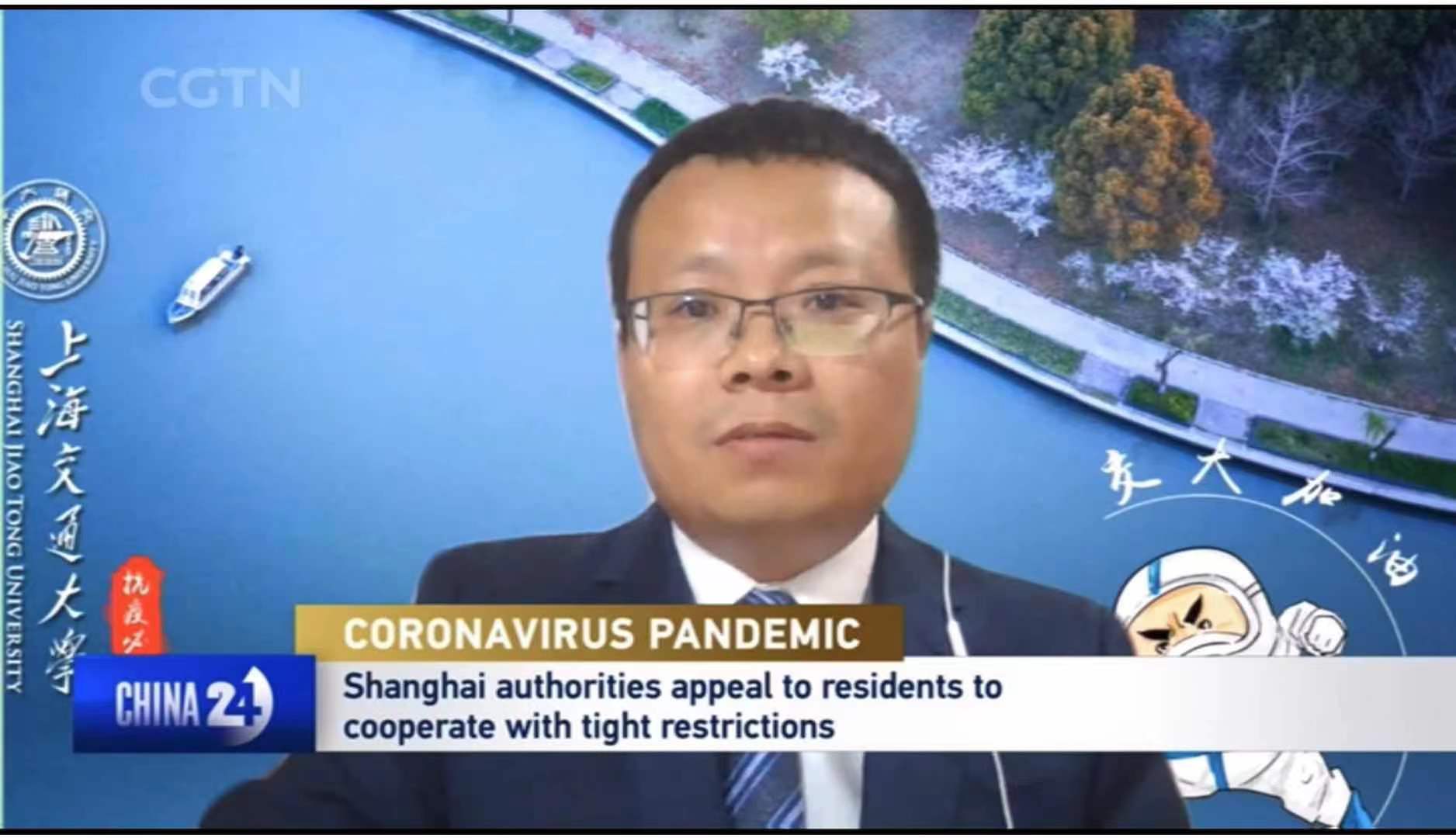
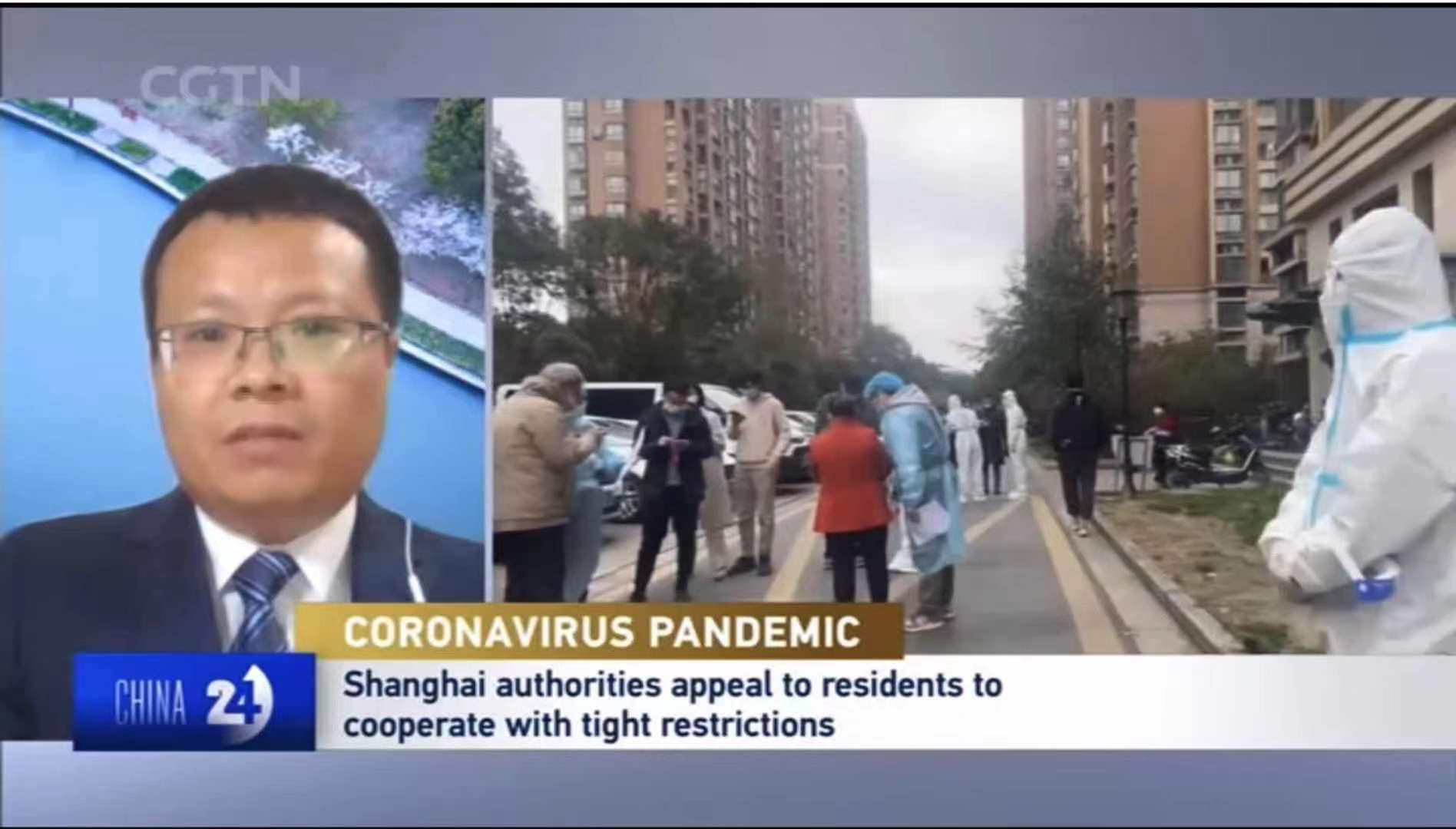
赵大海:由于分阶段封控管理策略只实施了4天的时间,其有效性尚未充分显现。据我所知,当一个城市的每日确诊病例超过五千时,新冠疫情肯定已进入社区传播阶段了。根据上海新冠肺炎新增病例的最新分布来看,社区传播已发生在每个区的大量社区了。因此,对上海采取封控管理是应对本波新冠疫情的唯一途径。根据以往在中国大陆其他城市抗击新冠疫情的经验,全市封控管理策略将在大约两周内全面显示其效果。
虽然上海的两阶段封控管理策略不同于其他城市所采取的全市在同一个时间的封控管理,但本质上是非常相似的。因此,我认为,如果将封控管理的策略适当延长一段时间,该策略才能起到预期的效果;如果封控管理在两周之前就结束了,其策略的有效性将受到限制。
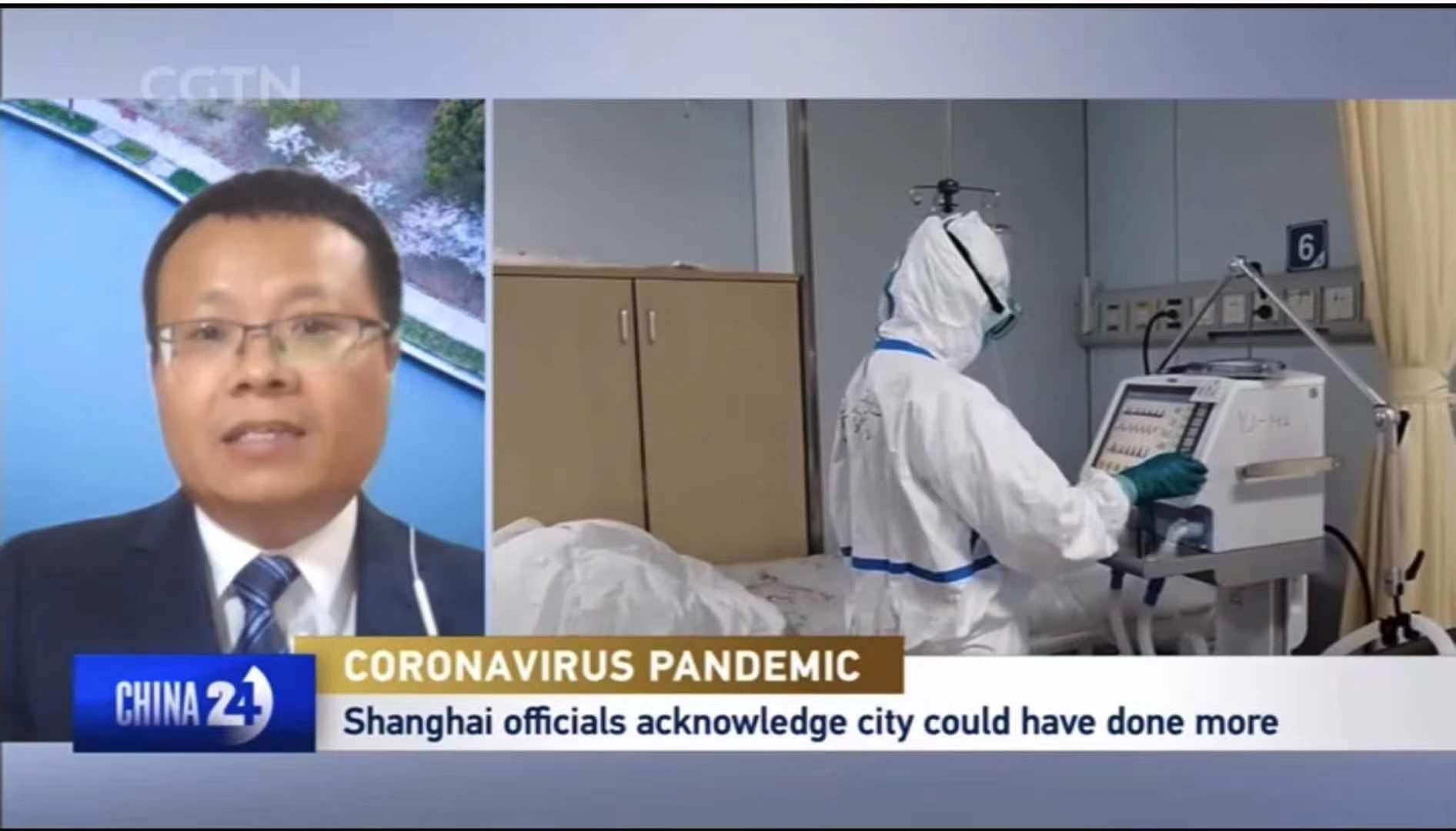
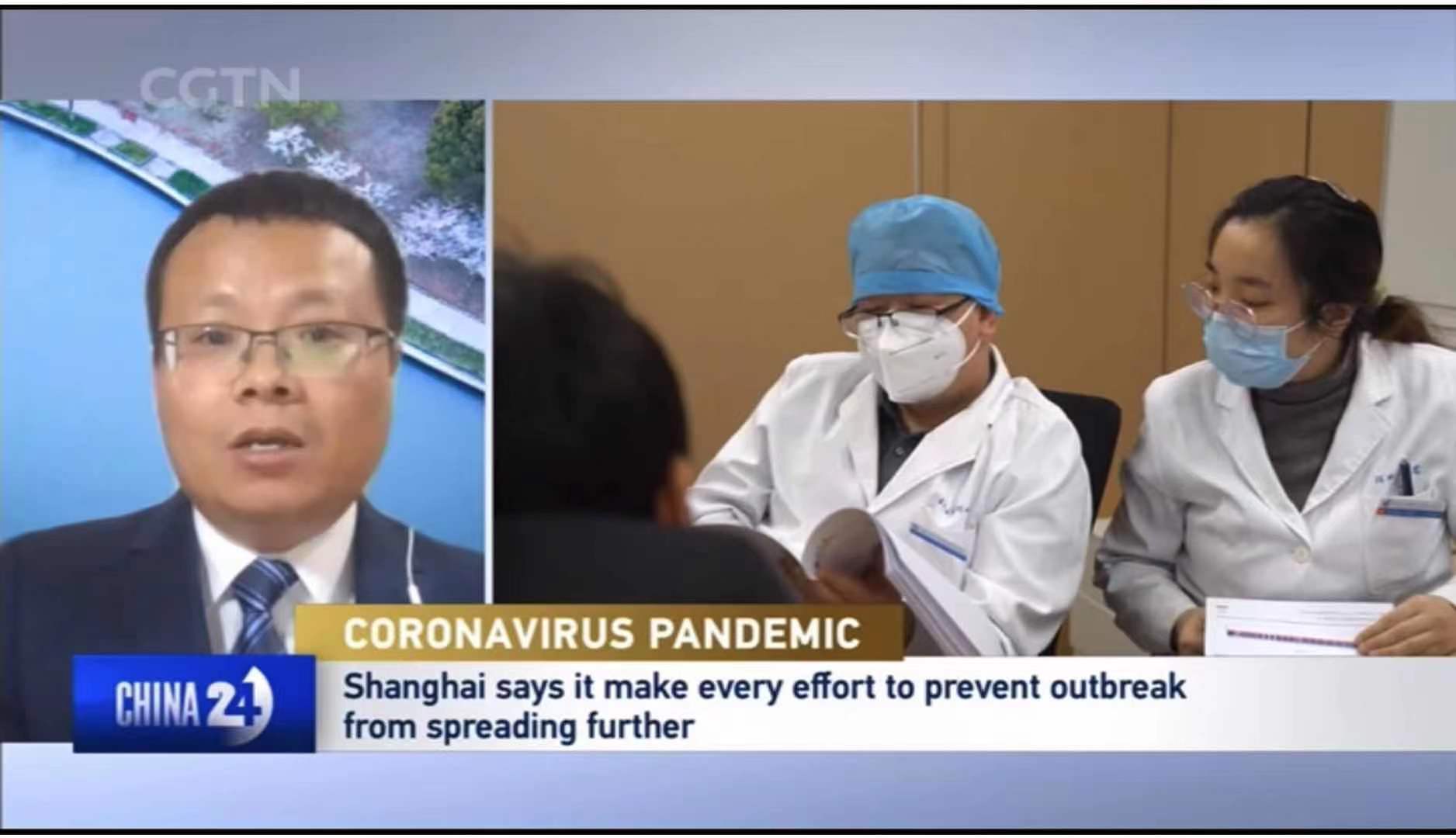
主持人:上海的每日新增病例在周四已有所缓解,这是大约两周以来的首次。您对“动态清除”策略如何评价?
赵大海:“动态清零”策略是毫无疑问的。上海必须遵守动态清零策略。实际上,上海目前每日新增病例量的趋势走向尚不明确。由于上海在未来几天要对全市更多市民进行核酸检测,每日新增病例的数字可能还会进一步升高。但是,上海每日新增病例的趋势不会影响动态清零策略的实施。
即便当上海依然还有一些新增新冠确诊病例时,封控管理的策略可能就结束了,但这必须有一个先决条件。这个先决条件是,所有离家外出的市民都已确保不再是与本波疫情相关联的确诊病例或密切接触者了。当这一先决条件得到满足时,即使有新的确诊病例,离家外出的市民也是安全的。因此,上海的疫情防控策略本质上依然是“动态清零”策略。
供稿者:国务学院
日期:2022年3月31日
ZHAO Dahai’s 124th explanations on COVID-19 on TV: Zero-covid strategy should be obeyed by Shanghai’s combating covid-19
Dahai Zhao, a doctoral supervisor at the School of International and Public Affairs of Shanghai Jiao Tong University and Executive Director of Shanghai Jiao Tong University-Yale University Joint Research Center for Health Policy, has been interviewed by CGTN for the 72nd time (the 124th time by CGTN / ShanghaiTV) since the COVID-19 pandemic. On March 31st, Zhao commented on COVID-19 prevention and control in Shanghai on CGTN “China 24”.
Question 1: Shanghai adopted a phased closed-off management strategy to tackle its latest outbreak. How effective is this approach?
ZHAO:Due to the fact that the phased closed-off management strategy has been implemented for 4 days, the effectiveness has not been fully shown.
As far as I know, when the daily confirmed cases arrive at more than 5 thousand, the pandemic enters a period of community transmission. According to the latest distribution of the pandemic in Shanghai, the community transmission occurs in a large number of community areas in each district. Therefore, the closed-off management of the city is the only way to deal with the pandemic. According to the previous experiences of the combating pandemic in other cities in the Chinese mainland, the strategy of the whole city’s closed-off management will be effective in about 2 weeks.
Although the phased closed-off management strategy in Shanghai is different with the closed-off management of the whole city, it is much similar in essence. Thus, I think if the strategy of the closed-off management of the city is extended for a longer time, it will be effective; however, if the closed-off management is opened much earlier than two weeks, the effectiveness will be much limited.
Question 2: Shanghai's daily caseload eased on Thursday, for the first time in about two weeks. What’s your assessment of China's "dynamic clearance" strategy?
ZHAO:The dynamic clearance" strategy is no doubt. Shanghai must obey the dynamic clearance strategy. Actually, the trend of daily caseload is not clear. With the nucleic acid tests are conducted for all citizens in Shanghai, the number may be higher than previous days. However, the trend of Shanghai's daily caseload can not affect the implementation of dynamic clearance strategy.
Although the phased closed-off management strategy will be ended when there are many new confirmed cases in Shanghai, there must be a necessary condition. That is, all citizens who go outside, and the public places are no potential confirmed cases or close contact. When this necessary condition is met, even there are new confirmed cases, the citizens who stay outside of home are safe. Therefore, the strategy in Shanghai is also the dynamic clearance strategy in essence.
Contributor:SIPA,SJTU
Date:March 31st,2022

